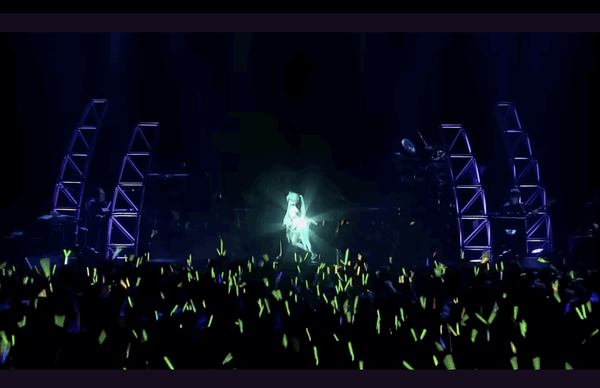Register for free to receive our newsletter, and upgrade if you want to support our work.
As far as I’m concerned, most artists and fans of a given genre are fairly content with the name they have for the kind of music they are involved in. Punks are proud to be punks, pop-music lovers can hardly argue that their current pop-icons are making popular music, and I have never met a musique concrète fan complaining about this very French term.
The IDM community however, is very different. To quote Vice’s article: ‘in 1993, music obsessives Alan Parry and Brian Behlendorf created the online message board which gave us the earliest recorded use of the term ’intelligent dance music.’ Their IDM List – designed for people to discuss Aphex Twin, Warp’s 1992 Artificial Intelligence compilation, and any somewhat inward-looking electronic music – became an addictive space for both fans and artists.’ Ever since the term IDM gained a wider popularity outside of the message board, it met intense criticism from both artists and fans alike. As Aphex Twin’s famous quote goes,
‘I just think it's really funny to have terms like that. It's basically saying 'this is intelligent and everything else is stupid.' It's really nasty to everyone else's music. It makes me laugh.’
An attempt to battle the dominance of the IDM name has been made: Aphex Twin started to use braindance both for his works and for the material that was released on Rephlex; glitch was a quite prevalent term in the late 2000s, and I remember deconstructed club in the use in the late 2010s. (And surely, we have the super-wide ranging term experimental electronics, but that just covers too many subgenres). Despite all of these (sometimes I hear post-club these days), IDM is still here even 30+ years later, as none of the other labels have quite managed to overthrow its prevalence, even though everyone in the community hates to use it.
As Pitchfork said in 2017, ‘IDM as a scene and a sound doesn’t really exist anymore’. Partly, I have to agree, since I cannot name a town or city that has a thriving IDM scene or know a community that is continuing its tradition. Some artists and labels however, do so, plus IDM has its legacy in a lot of other genres, so sound-wise I definitely would not say that it is a lost form of art. To prove this, here are some labels that still carry the torch of IDM in the current landscape of electronic music.
1. Point Source Electronic Arts

Founded in September 2020, Point Source Electronic Arts is an electronic music record label, media arts service, and creative community. What makes PSEA really special is that they take the ‘creative community’ part seriously: besides the regular album releases they put out compilation albums titled ‘Artist Showcase [year]’ which represents the roster of the label for that annual period. Not only that, but these releases regularly come with free-to-use massive sample packs, which are powerful creative tools for artists and creators. Furthermore, they also have their Genome-series: on these VAs, artists use the same sample packs (thus, their tracks share the same musical DNA, hence the name); plus, by purchasing the album, listeners can also get this pack. Across its releases, PSEA truly shows the wide ranging possibilities of experimental electronics.
Recommended listen:
Artist Showcase 2020/21
Genome 5
Hexalyne - Exivvaves

Founded in 1997, Detroit Underground is a multidisciplinary arts collective. They are functioning primarily as a record label, but if we take a look at their website, we can find so much more: modules for Eurorack systems, podcasts (which are mainly mixes and live recordings), a super cryptic looking chat (beta), and of course the crazy amount of releases and list of artists who worked with DU so far. As of now, their output total around 300 releases if I counted correctly, and the graphic design they have, not only for the albums but for their website as well, is truly next level. Sound-wise, they are oftentimes avant-garde, dark and solemn. They have a diverse and wide-ranging palette of artists, heavily expanding the IDM term by colliding it with other genres. Take a bite of the Earth-shattering sounds of Vaag, the oldschool braindance vibes of noiserpuss, or the minimal glitches of Marshall Applewhite and see for yourself.
Recommended listen:
Marshall Applewhite - Out Through the Mouth
Vaag - Vague
Richard Devine - RISP LP
3. Errorgrid

Hailing from Portland, Oregon, Errorgrid (est. 2020) definitely represents the darkest side of all of contemporary IDM labels. With artists like Snakes of Russia, Nundale, or DFANIKS, who are regularly releasing since the early days of the label, we can hear the dystopian, heavy,burdensome, and grim aspect of IDM. The label was founded by Nundale aka Olivier along with his wife, Vira (source). As of writing this article, their website is currently down, but they have plenty of very insightful interviews and articles on their site, featuring in-house talks and discussions with their artists – I hope those will be available again soon. Errorgrid feature a tight roster, only occasionally opening up for their VA albums. Therefore, the compilation materials are a great way of getting a quick glimpse into the label’s overall sound. Gridworks 1: Tension/Release, as a prime example, shows mainly slowly, carefully carried out reverberated and moody beats of unknown, industrial, nonexistent (or soon-to-be-crafted) machinery, which is quite a contrast to the, let’s say, more adventurous nature of Detroit Underground.
Recommended listen:
DFANIKS - Centipede
Nundale - Staircases: A
TÆT - Messages
4. Evel Records

Based in Barcelona, Spain, Evel Records was established in 2015. As of now, it is listing 85 albums, touching on a wide range of IDM flavors, whether they’re beat-driven jams with lush chords reminiscent of Warp’s Artificial Intelligence-series (e.g. their first release, Lamatrois & Secret kitchen - Evel at last), or super crisp, “glitch-laced textures, [and] unstable rhythms”, as the liner notes for their latest release says (Marco Simioni - Essence through approximation). One of the most striking and exciting additions to the catalog is Jim Reeve-Baker’s Music for Toshiba HDD2H74: with its 60-min timespan, it is a collection of six ‘wavs found while recovering data from an old hard drive’, lingering on the verge of found sound, noise, and glitch. Evel’s pace of releasing music is insane: this year they have already released 17 albums, and we are ‘only’ halfway through the year – I’m curious to see what else they have in the pipeline for the rest of 2025.
Recommended listen:
Marco Simioni - Essence through approximation
Temp-Illusion - Noxious Jaam
VAAG & POBORSK - EVEL_071

Clean Error was founded in Atlanta, Georgia (est. 2013) by James Batista. Batista also releases on the label with his Enabl.ed alias, notably with the ErrorBalm series of albums. Besides its impeccable output, what makes Clean Error interesting is that on its official website, there is also some additional stuff I have not quite seen before with other labels. For starters, it has a blog-section that details not just the behind-the-scenes aspects of certain releases, but also some of the ideas behind label, written by James Batista himself (this post is particularly interesting, in which Batista addresses what is very apparent by looking at the label’s Bandcamp: the embraced and intense use of AI-generated artworks). Additionally, they also have a monthly subscription package that features extra content, such as exclusive releases, live mixes, sample packs, and the entire back catalog. The sound of Clean Error is at times massive and heavy, diving into the dystopian, retrofuturistic imagery of the label’s visual identity; but at other times, it is dreamy, atmospheric, and vibrant.
Recommended listen:
Hasbeen - Bunker symphonies
Enabl.ed - ErrorBalm Vol. 1
YX - YX 01.5
PS. Of course, there are many labels that, among other genres, release IDM albums (eg. PAN, AD93, etc.), and then there are other, more popular IDM-oriented labels that exist since the 1990s (Planet Mu, Mille Plateaux, Raster Media fka. Raster-Noton). While the output of these labels is immaculate and worth digging in, this above collection deliberately aims to introduce the more niche, more dedicated labels that focus almost exclusively on beat-based, atonal, intense, and heavy compositions of explorative electronics, that is IDM.
This article is brought to you as part of the EM GUIDE project – an initiative dedicated to empowering independent music magazines and strengthen the underground music scene in Europe. Read more about the project at emgui.de.
Funded by the European Union. Views and opinions expressed are however those of the author(s) only and do not necessarily reflect those of the European Union or the European Education and Culture Executive Agency (EACEA). Neither the European Union nor EACEA can be held responsible for them.







